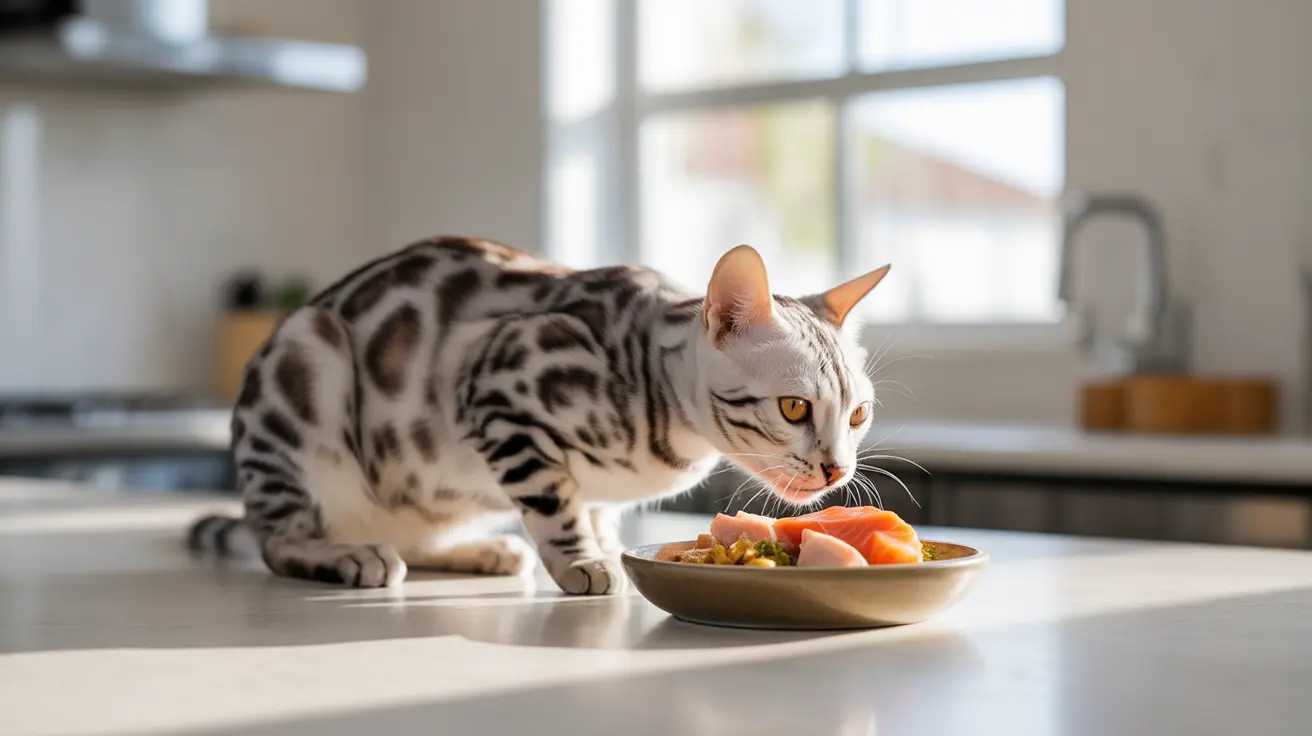Understanding the essential nutrients for cats is crucial for every pet parent who wants to keep their feline friend healthy and energetic. As obligate carnivores, cats have unique nutritional requirements that set them apart from other pets, making it vital to provide them with the right balance of nutrients for optimal health.
In this comprehensive guide, we'll explore the fundamental nutrients that cats need to thrive, from crucial proteins and amino acids to essential vitamins and minerals. We'll also discuss why these nutrients are so important and how to ensure your cat gets them in their diet.
The Foundation: Protein and Essential Amino Acids
Protein is the cornerstone of feline nutrition, serving as the primary energy source and building block for your cat's body. Unlike many other animals, cats require high levels of animal-based protein to maintain their health and vitality.
Two critical amino acids that cats must obtain from their diet are taurine and arginine. Taurine supports vision, heart health, and reproductive function, while arginine helps prevent toxic ammonia buildup in the body. These can only be found in sufficient quantities in animal tissues, particularly organ meats.
The Power of Fats in Feline Nutrition
Fats play a crucial role in your cat's diet, providing more than twice the energy of proteins or carbohydrates. They're essential for:
- Cell membrane structure
- Hormone production
- Absorption of fat-soluble vitamins
- Body temperature regulation
- Skin and coat health
Essential fatty acids, including omega-3 and omega-6, are particularly important as cats cannot produce them on their own. These must come from their diet to support various bodily functions and maintain optimal health.
Critical Vitamins and Minerals
Cats require specific vitamins and minerals to maintain their health and energy levels. Unlike humans, cats cannot synthesize certain vitamins from plant sources, making their dietary needs unique:
Vital Vitamins
- Vitamin A for vision and immune function
- Vitamin D for bone health
- B-complex vitamins for metabolism
- Vitamin E for cellular protection
Essential Minerals
- Calcium and phosphorus for bone strength
- Iron for blood health
- Zinc for immune function
- Magnesium for nerve and muscle function
Hydration and Water Balance
While often overlooked, proper hydration is crucial for cats' energy levels and overall health. Cats evolved as desert animals and have a low thirst drive, making it essential to consider moisture content in their diet, whether through wet food or by encouraging water consumption.
The Role of Commercial Cat Foods
Quality commercial cat foods are formulated to provide all the nutrients cats need in the right proportions. When choosing a cat food, look for:
- High-quality animal protein as the first ingredient
- Appropriate fat content
- Added taurine
- Essential vitamins and minerals
- Moisture content appropriate for your cat's needs
Frequently Asked Questions
What are the essential nutrients cats need for a healthy diet?
Cats require high-quality animal protein, essential fatty acids, taurine, arginine, vitamins A, D, E, and B-complex, and minerals such as calcium, phosphorus, and magnesium for a healthy diet.
Why is taurine important for cats, and which foods provide it?
Taurine is crucial for cats' heart health, vision, and reproduction. It's found naturally in animal tissues, particularly heart and liver, and is added to commercial cat foods to prevent deficiency.
Can cats thrive on vegetarian or vegan diets without animal protein?
No, cats cannot thrive on vegetarian or vegan diets. As obligate carnivores, they require specific nutrients found only in animal proteins for survival and optimal health.
How do vitamin and mineral deficiencies affect a cat's health?
Vitamin and mineral deficiencies can lead to serious health issues, including vision problems, bone disorders, muscle weakness, and immune system dysfunction. Regular consumption of balanced cat food prevents these deficiencies.
What is the role of fats and essential fatty acids in a cat's nutrition?
Fats and essential fatty acids provide energy, support cell structure, aid in vitamin absorption, and maintain skin and coat health. They're also crucial for hormone production and inflammation control.
Understanding and providing the right nutrients for your cat is essential for their long-term health and vitality. By ensuring their diet contains all necessary nutrients in appropriate amounts, you can help your feline friend live a healthy, energetic life.






